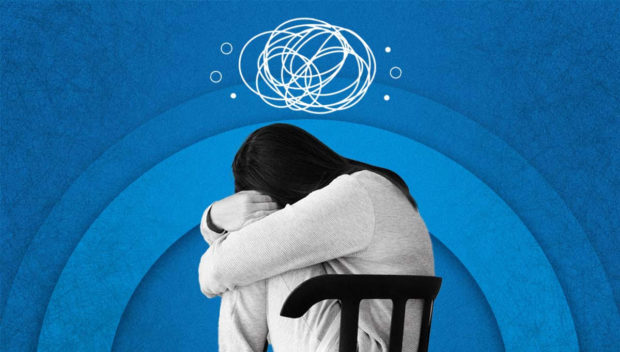MANILA, Philippines — Nearly half of Filipino female employees struggle with depression and anxiety in the workplace, while about seven in 10 find it more difficult to strike a balance between work and personal life compared to their male counterparts.
These are among the key findings of a survey conducted this year by the mental health organization MindNation and cited by a United Nations office advocating gender equality and women empowerment.
The survey, which had 15,000 employees as respondents, showed 45 percent of female employees had grappled with depression, anxiety, and a sense of emptiness, while 77 percent “experience[d] significantly more difficulties” in achieving work-life balance compared to male employees.
Thirty-eight percent of the women also said mental health challenges, particularly stress, slowed their productivity, and that they were losing an average of 15.5 hours per week due to mental health concerns.
Almost half or 45 percent of the respondents blamed “financial pressure” for their mental health problems. Thirty-one percent reported suffering burnout due to a lack of attention being given to their mental health.
Twenty-four percent of female employees also said they intended to resign from their job because of mental health issues.
‘Alarming reality’
A statement issued on Tuesday by UN Women Philippines cited the MindNation survey, saying the results pointed to an “alarming reality” in the workplace.
Lenlen Mesina, the UN program’s coordinator in the country, urged companies to address it by adopting “Women Empowerment Principles,” a roadmap for advancing gender equality and women empowerment in the workplace based on leadership, equality, safety, transparency, and continuous learning.
“Recognizing the intersectionality between gender and mental health disparities is crucial for companies to take proactive and well-crafted strategies that address these needs,” added Cat Triviño, cofounder and chief product and data officer of MindNation.
“Without concrete, effective and gender-sensitive solutions, women are left to disproportionately bear the burden of these gaps in intervention,” Triviño added in the UN statement.
Unequal pay, recognition
Niño Mateo, president of the Psychological Association of the Philippines, said it was “not surprising that female employees will report high levels of psychological distress given that they have always been expected to perform numerous tasks simultaneously,” including taking care of the family.
“This is considering the unequal recognition and compensation they receive compared to men,” Mateo told the Inquirer.
Echoing the UN program’s recommendations, Mateo, a clinical psychologist, said a company should “not just be reactive but preventive” in their approach to employees’ mental health concerns.
In February 2020, the Department of Labor and Employment issued Department Order No. 208 which required companies, including those deploying migrant workers, to adopt and implement mental health policies and programs.
These programs should have advocacy, education, and training components; “nondiscriminatory” practices; treatment and rehabilitation; confidentiality of information; disclosure of medical or mental condition; principles of equality applied to work arrangements, benefits, and compensation, among others.
